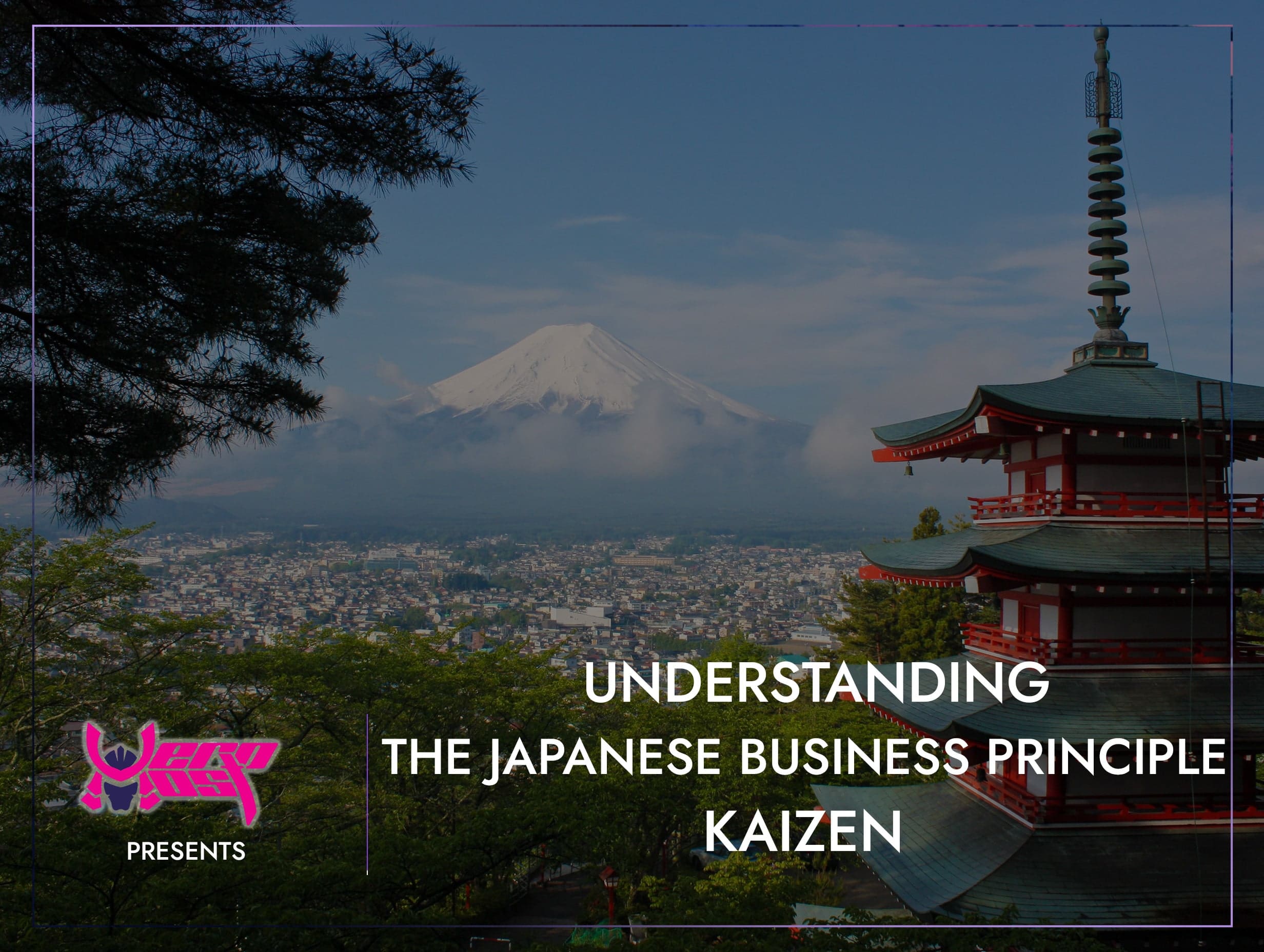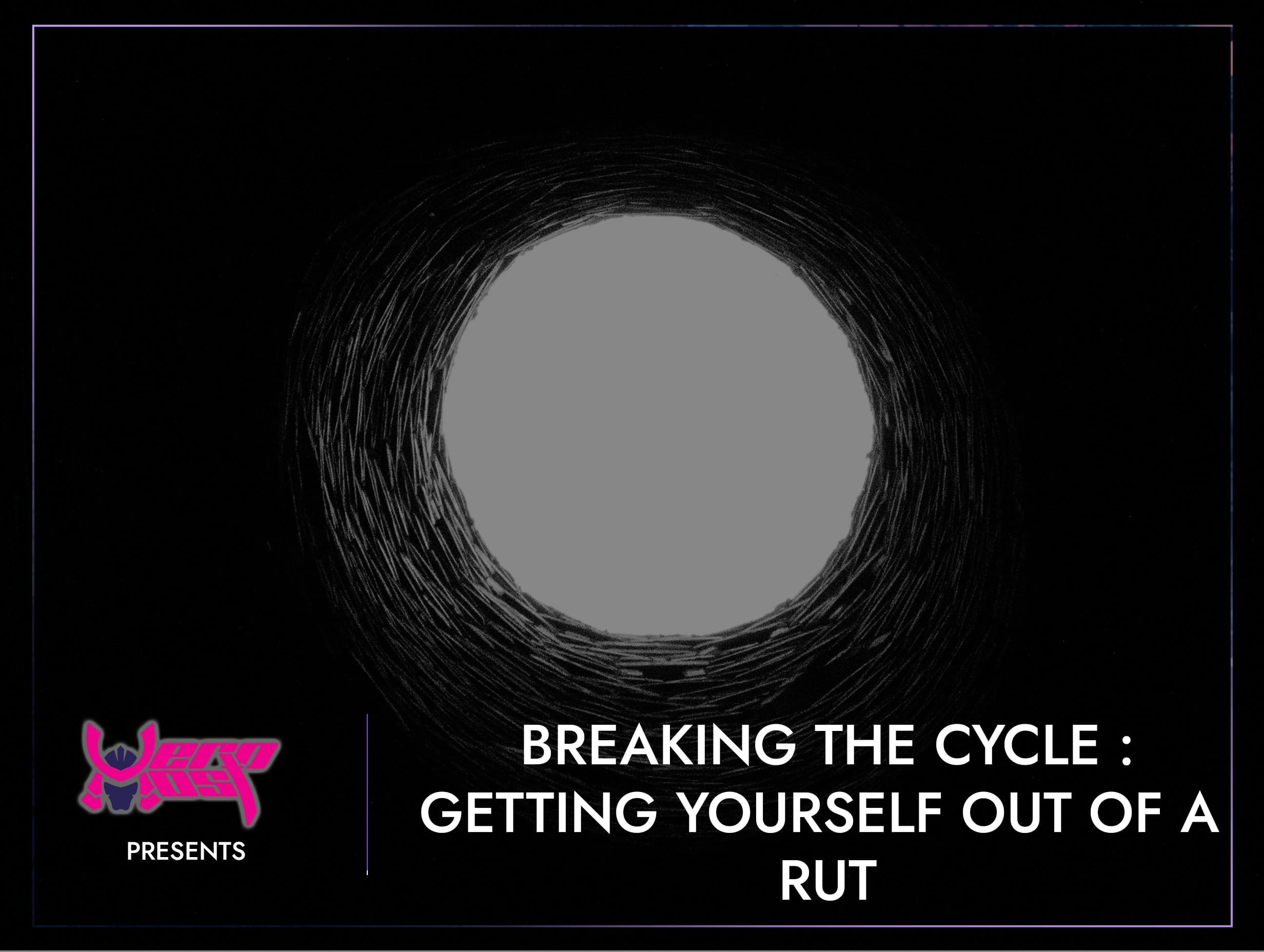Kaizen – The Japanese Business Principle of Continuous Improvement
- Home
- Lessons From Asia
- Kaizen – The Japanese Business Principle of Continuous Improvement

- Mikey Ryu
- December 29, 2023
- 0
Kaizen – The Japanese Business Principle of Continuous Improvement
What is Kaizen?
This marks the start of a brand new blog series where we dive into Japanese principles that can help us both in business and everyday life. The topic of this blog is the Japanese principle “Kaizen” meaning “continuous improvement” and is used in all parts of life. In this blog, we will delve into how we can use it to improve business and improve our personal life.
Contents of This Blog:
What is Kaizen?
Kaizen is the Japanese business principle, meaning “continuous Improvement” and strives for members of a business to constantly look for ways to improve any part of their business. Kaizen uses teamwork and analytics to come to conclusions and find ways to optimise methods and constantly improve a business’s output and the company’s overall teamwork. This business principle allows for improvement over any point in time and and every employee, the principle doesn’t just apply to the business as a whole but to every individual that works there.
The Principles of Kaizen:
Kaizen has five main ideas, these consist of know your customer, let it flow, go to gemba, empower people, and be transparent. All five of these together make the process of development significantly easier and in this blog, we will break each one of these down.
Know your Customer:
This underscores the importance of understanding and meeting the needs of customers at a deep level. This principle recognises that customer satisfaction is a critical driver for improvement in products, services, and processes. By thoroughly understanding the preferences, expectations, and concerns of customers, organisations practising Kaizen can tailor their offerings to better meet those needs. This involves regular and meaningful communication with customers, gathering feedback, and analysing data to identify areas for enhancement. This principle aligns with Kaizen’s overarching goal of incremental improvement, as organisations seek to evolve in ways that directly address and exceed customer expectations, fostering long-term loyalty and success.
Let It Flow:
This principle encourages a seamless and uninterrupted workflow by identifying and eliminating obstacles or inefficiencies in processes. Instead of rigidly adhering to existing structures, Kaizen urges individuals and teams to embrace a mindset of adaptability and flexibility. By allowing improvements to naturally evolve and flow through the organisation, this principle promotes a culture of innovation, collaboration, and ongoing enhancement, ultimately contributing to sustained growth and success. This approach encourages employees at all levels to actively engage in problem-solving and continuous refinement, fostering a dynamic and responsive organisational environment.
Go To Gemba:
Gemba, in this context, refers to the actual place where work is done, whether it be a manufacturing floor, office, or any operational setting. The essence of “go to gemba” lies in the belief that to truly understand and improve a process, one must go to the source, observe operations firsthand, and engage with the people involved. This principle emphasises the importance of direct observation over relying solely on reports or secondhand information. By immersing oneself in the gemba, individuals gain insights into inefficiencies, identify opportunities for improvement, and foster a culture of collaboration and problem-solving. It is a cornerstone of Kaizen’s methodology, promoting a proactive and hands-on approach to the continuous enhancement of organisational processes and systems.
Empower People:
This principle shows the importance of fostering a workplace culture that empowers and engages employees at all levels. This principle recognises that those closest to the work processes often possess valuable insights into potential improvements. By empowering individuals to voice their ideas, take ownership of their tasks, and contribute to decision-making processes, organisations can tap into a wealth of collective intelligence. This empowerment not only boosts morale but also encourages a sense of responsibility and accountability, creating a more dynamic and responsive environment. In essence, this principle of Kaizen recognises that sustainable improvements arise from the active involvement and empowerment of employees, fostering a culture of innovation and continuous enhancement.
Be Transparent:
In the context of continuous improvement, transparency involves sharing information about processes, goals, and performance metrics with all members of the team. This principle encourages a culture where employees feel comfortable expressing their ideas, concerns, and feedback. By fostering transparency, organisations create an environment that supports the identification of inefficiencies and opportunities for improvement. When everyone has access to relevant information, it becomes easier to collaborate and work collectively towards achieving common objectives. Transparency in Kaizen promotes a shared understanding of the current state of affairs, enabling teams to make informed decisions and implement changes that lead to continuous improvement.
Applying Kaizen In Business:
Applying the Kaizen Philosophy in business involves a strategic and systematic approach aimed at fostering continuous improvement across all facets of an organisation. One key aspect is to cultivate a culture of collaboration and open communication. Encouraging employees at all levels to share their insights and ideas creates a rich pool of knowledge to draw from. Regular brainstorming sessions and feedback loops help identify areas for improvement. Another crucial step is to set specific, measurable, achievable, relevant, and time-bound (SMART) goals. By breaking down larger objectives into smaller, manageable tasks, businesses can track progress more effectively and make continuous adjustments.
Implementing visual management is another practical aspect of applying Kaizen. Visual cues, such as charts, graphs, or Kanban boards, make it easier to comprehend complex processes and monitor performance. These tools not only enhance understanding but also empower employees to take ownership of their work and contribute to the overall improvement effort. Additionally, fostering a mindset of incremental change is essential. Rather than pursuing large-scale overhauls, businesses should focus on making small, incremental adjustments to processes and workflows. This approach minimises resistance to change and allows for a smoother transition toward continuous improvement.
Furthermore, embracing technology plays a pivotal role in applying Kaizen in the modern business landscape. Leveraging innovative tools and software for data analysis, project management, and communication streamlines processes and enables teams to respond promptly to emerging opportunities or challenges. Regular training and development initiatives ensure that employees are equipped with the necessary skills to adapt to changing environments and contribute meaningfully to the organisation’s continuous improvement journey. Ultimately, by integrating these practical approaches, businesses can effectively apply the Kaizen Philosophy and create a dynamic environment that thrives on perpetual enhancement and innovation.
Applying to Personal Life:
Incorporating the principles of Kaizen into your personal life can lead to transformative and sustainable improvements. Here’s a practical guide on how to apply Kaizen to various aspects of your daily routine:
1. Start Small, Think Big:
Begin by identifying small, manageable goals that align with your long-term objectives. Break down larger aspirations into smaller, achievable tasks. For example, if your goal is to lead a healthier lifestyle, start by making small changes to your daily routine, such as taking short walks or incorporating more vegetables into your meals.
2. Continuous Reflection:
Embrace a habit of continuous self-reflection. Set aside time regularly to assess your progress, acknowledging both successes and areas for improvement. Reflecting on your actions helps you stay focused on your objectives and allows for adjustments when needed.
3. Embrace a Mindset of Improvement:
Cultivate a mindset that views challenges as opportunities for growth. Instead of dwelling on setbacks, analyse them objectively and use the experience to learn and adjust your approach. Embracing a positive attitude towards improvement fosters resilience and perseverance.
4. Prioritise Kaizen in Daily Habits:
Apply the Kaizen philosophy to your daily habits. Identify one habit at a time that you want to enhance or modify. Consistently work on refining these habits by making incremental changes. For instance, if you aim to become more organised, start by decluttering a small area each day.
5. Encourage Open Communication:
Kaizen thrives on open communication. In your personal life, encourage transparent and constructive conversations with yourself and those around you. Share your goals, seek feedback, and be receptive to suggestions. This fosters a supportive environment that propels personal development.
6. Continuous Learning:
Embrace a commitment to lifelong learning. Whether it’s acquiring new skills, reading informative books, or attending workshops, a dedication to continuous learning ensures that you are consistently evolving and adapting to new opportunities for improvement.
7. Celebrate Small Wins:
Acknowledge and celebrate your achievements, no matter how small. Recognising and appreciating progress boosts motivation and reinforces the positive changes you’re making in your personal life.
By integrating these practical steps into your daily routine, you can apply the Kaizen philosophy to enhance your personal development journey. Remember, the key lies in making continuous, incremental improvements, which, over time, can lead to significant positive changes in various aspects of your life.
Conclusion:
In conclusion, integrating the Kaizen philosophy into both work and personal life proves to be a transformative approach with enduring benefits. The emphasis on continuous improvement, small incremental changes, and a commitment to learning fosters a culture of excellence. In the professional realm, Kaizen promotes efficiency, innovation, and a collaborative environment, leading to increased productivity and job satisfaction. On a personal level, adopting Kaizen principles cultivates a mindset of growth, resilience, and self-reflection. By consistently making small positive changes and embracing a proactive attitude towards challenges, individuals can experience sustainable improvements in their overall well-being. Kaizen is not just a methodology; it’s a guiding principle that empowers individuals to create a path of continuous improvement, both professionally and personally, ensuring a journey of lifelong growth and fulfilment.
Search
Categorys
- Branding (12)
- Business Growth Guides (3)
- Business Insights (3)
- Content Marketing (43)
- Domain Authority (19)
- Email Marketing (28)
- Google Analytics & Search Console (5)
- Hack or Not (2)
- Hero Host News (0)
- Inbound Marketing (32)
- Lessons From Asia (40)
- Marketing Guides (11)
- Martial Arts Journey (14)
- Outbound Marketing (8)
- Search Engine Optimisation (SEO) (41)
- Social Media Marketing (38)
- Web Design (20)
- Website Hosting (4)
- Wordpress (2)






